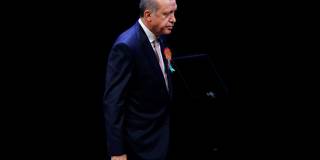The accession narrative no longer frames Turkey’s relationship with the European Union, and the government’s far-reaching crackdown on opponents since July’s coup attempt has probably buried that diplomatic framework for good. What will take its place?
ISTANBUL – Two months after the failed coup in Turkey, the country continues to suffer from its consequences. Government authorities have already raised the prospect of extending the state of emergency, initially imposed for three months. Of equal concern has the been the scale of the effort to purge the followers of the US-based cleric Fethullah Gülen, whose followers in state institutions are accused of organizing the coup.

ISTANBUL – Two months after the failed coup in Turkey, the country continues to suffer from its consequences. Government authorities have already raised the prospect of extending the state of emergency, initially imposed for three months. Of equal concern has the been the scale of the effort to purge the followers of the US-based cleric Fethullah Gülen, whose followers in state institutions are accused of organizing the coup.